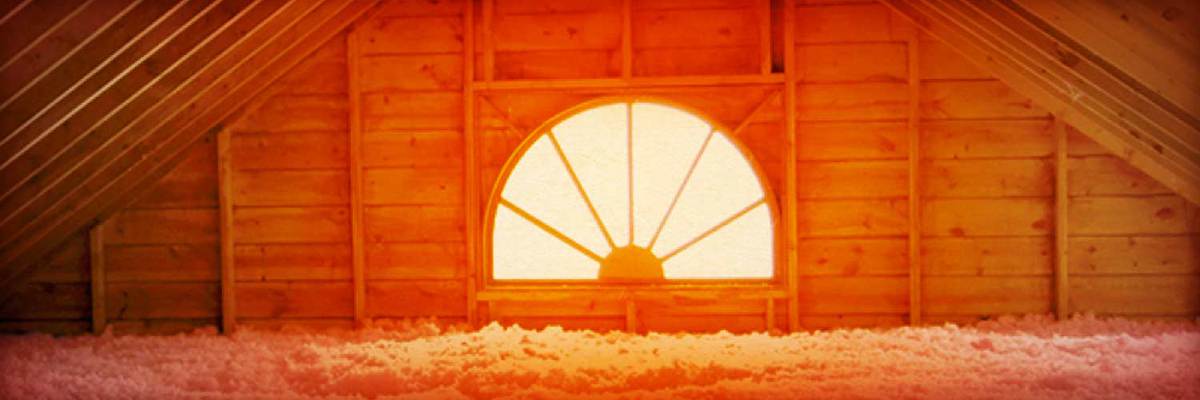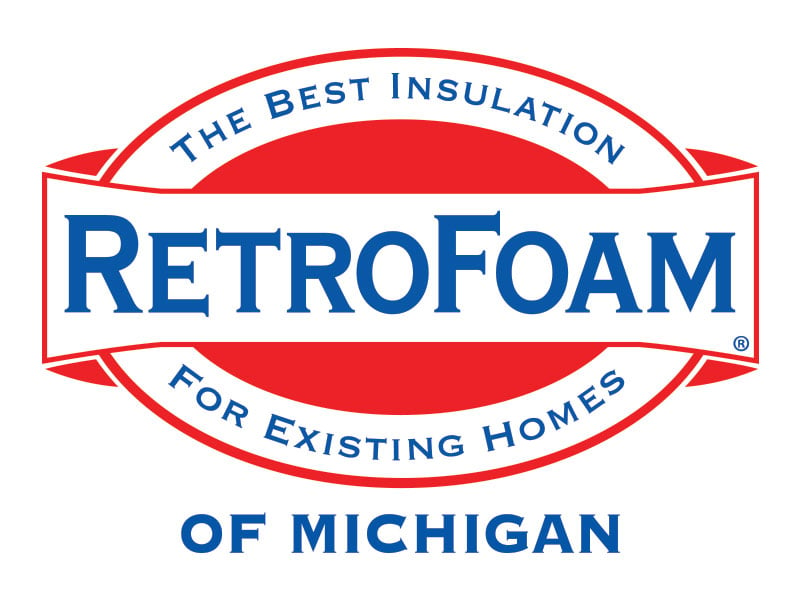How Much Insulation Do I Need in My Attic?


Have you noticed your attic insulation is all fluffed to one side or has black spots throughout it?
You might also notice ice dams around your home, and your monthly energy bills are through the roof.
These are all signs that it’s probably time for you to update your attic insulation.
Adding insulation in your attic is a great way to improve your home’s comfort and energy efficiency.
Attic insulation can help prevent the air you pay to treat from leaking through the roof. This will keep your home more comfortable and help reduce your monthly energy bills.
Nearly $200 to $400 of the almost $2,000 paid annually by the average American for energy is wasted due to drafts, air leaks, and outdated heating and cooling systems, according to the U.S. Department of Energy.
RetroFoam of Michigan has insulated thousands of attics across Michigan’s Lower Peninsula, so we know how much insulation you need in your attic to meet your goals, no matter what insulation material you choose.
Let’s take a look at how to tell if you need attic insulation, how much to add, and how the state you live in can play a role.
How Do I Know if I Have Enough Insulation in My Attic?
If your energy bills are creeping up, it might be a sign that it's time to give your attic insulation a check-up.
Head up there and take a close look at what's going on. Whether you have cellulose or fiberglass, check out its condition and how much is in place. If the insulation is at or below your floor joists, it's time to add more, according to Energy Star.
But if your insulation is piled up high and completely covering your floor joists, you're probably good. Adding more won't do much to improve energy efficiency at that point.
Keep in mind that cellulose can shift around over time. You might see a big fluffy pile in the middle of the attic but little to no coverage along the edges. Make sure it's spread out evenly to get the right coverage.
Fiberglass can also settle, losing that signature pink, cotton-candy look. It might seem like there's plenty up there, but moisture and airflow could be reducing its effectiveness. Even if it looks full, it might not be doing its job.
How Much Insulation Do I Need in My Attic?
When it comes to traditional insulation like cellulose or fiberglass, you'll hear a lot about something called R-Value.
This is just a fancy term for how well the insulation resists heat flow. The higher the R-Value, the better it's supposed to keep your home cozy, according to the U.S. Department of Energy.
Basically, the colder your state, the higher the R-Value you'll need. For example, in Michigan, which falls into climate zones five through seven, an uninsulated attic should have an R-Value between R-49 and R-60. If you already have about 3 to 4 inches of insulation up there, you'll need to bump that up to around R-38 to R-49 to really get the job done.
But here's the thing -- hitting that exact R-Value isn't always necessary.
Foam insulation, for instance, works differently. It can have a lower R-Value and still perform better because it creates an airtight seal that fiberglass and cellulose just can't match. So, instead of chasing numbers, it's more about choosing the right product that actually works for your home.
The Best Option to Insulate Your Attic
If your current insulation is on the thin side, adding more of the traditional stuff should help.
However, it will not provide the air seal you need to prevent those high bills and other problems.
Some homeowners want a fresh start when it comes to insulating their attics.
If lowering your energy bills and having a healthy home is a priority for your family, the best option for your attic is to remove the old insulation and replace it with spray foam insulation.
The air seal created with spray foam insulation will not only make the home more energy-efficient and comfortable but will also make the home healthy by keeping out pollutants and allergens.
Those traditional insulation materials retain those things, allowing them to circulate throughout the home.
If you want to learn more about the benefits of foam insulation in your attic, check out the Learning Center on our website.
Related Articles
How Thick Does Spray Foam Insulation Need to Be?
What is the Highest R-Value Insulation? (Ratings/Types/Charts)
What is the Best Insulation for an Attic? (Spray Foam vs. Fiberglass vs. Cellulose)
About Amanda Emery
Amanda previously has worked as a breaking news and crime reporter, TV news producer, and editor in Flint and Detroit. Throughout her career as a journalist, she has won several awards from The Society of Professional Journalists - Detroit Chapter and the Michigan Press Association. As part of the RetroFoam of Michigan family, Amanda uses her experience as a journalist to write content that will help educate homeowners on the benefits of foam insulation. When Amanda isn’t writing, she’s spending time with her husband and rescued huskies. She also loves knitting, making art, cooking, and hosting dinner and a movie night for friends and family.


